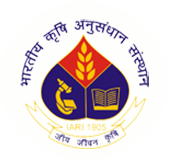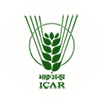Organic food systems : meeting the needs of Southern Africa / edited by Raymond Auerbach.
Material type: TextPublisher: Wallingford, Oxfordshire, UK : CABI, [2020]Copyright date: 2020Description: 1 online resource (xxxiii, 365 pages) : illustrations, map, chartsContent type:
TextPublisher: Wallingford, Oxfordshire, UK : CABI, [2020]Copyright date: 2020Description: 1 online resource (xxxiii, 365 pages) : illustrations, map, chartsContent type: - text
- computer
- online resource
- 9781786399625
- Organic farming -- South Africa
- Organic farming -- Zambia
- Organic farming -- Uganda
- Organic farming -- Tanzania
- Agricultural policy
- Biological control
- Carbon
- Chemical control
- Climate change
- Community involvement
- Crop yield
- Drought
- Education
- Energy consumption
- Farmers
- Farming systems
- Food prices
- Food production
- Food security
- History
- Integrated control
- Natural enemies
- Organic farming
- Organic foods
- Pathogens
- Pest control
- Pesticides
- Pests
- Plant disease control
- Plant diseases
- Plant pathogens
- Plant pests
- Self sufficiency
- Soil
- Soil fertility
- Soil flora
- Soil fumigation
- Sustainability
- Training
- Value chain
- Water supply
- Water use
- Water use efficiency
- 631.5/840968 23
- S605.5 .O6795 2019eb
Includes bibliographical references and index.
The Developing Organic Sector in Southern and Eastern Africa: What Have We Learned About Sustainable Development? / Raymond Auerbach -- An Overview of Global Organic and Regenerative Agriculture Movements / Andre Leu -- Organic Research Contributes to Sector Development and Good Organic Policy: the Danish, Swiss, American and African Case Studies / Raymond Auerbach -- The Organic Academy of IFOAM-Organics International: Training Multipliers in the Developing World / Konrad Hauptfleish -- Understanding a Food Systems Approach / Carola Strassner and Johannes Kahl -- BERAS: a Global Network of Food Systems with Examples from Sweden, Haiti, Tanzania and India / Jostein Hertwig -- The Likely Impact of the 2015-2018 Drought in South Africa: Lessons From the 2008 Food Price Crisis and Future Implications / Raymond Auerbach, Hannelise Piek, Jane Battersby, Stephen Devereux and Nic Olivier -- The Use of Participatory Rural Appraisal (PRA) to Support Organic Food Systems in Africa / Raymond Auerbach -- Strengthening Participation in the Organic Value Chain for Small-scale Farmers in Southern KwaZulu-Natal, South Africa / Wim Troosters, Raymond Auerbach and Gareth Haysom -- Participatory Guarantee Systems as an Organic Market Entry Point for Small-scale Farmers in South Africa / Nʹwa-Jama Mashele and Raymond Auerbach -- Development of an Inclusive Value Chain for Peri-urban Micro-farmers / Matthew Purkis -- Supporting Vulnerable Communities in the Eastern Cape: Assessing the Rainfall Evidence / Raymond Auerbach -- Water Efficiency, Energy Efficiency and Suburban Vegetable Production / Raymond Auerbach and Anastasia Caude -- Experiential Training of Farmers and University Diploma Students in KwaZulu-Natal and the Southern Cape / Raymond Auerbach -- The National Organic Agriculture Movement of Uganda / Jane Nalunga, Raymond Auerbach and Charles Ssekyewa -- Factors Contributing to Adoption or Disadoption of Organic Agriculture in Zambia / Robert Munthali, Raymond Auerbach and Mebelo Mataa -- The Rapid Incineration Field Test as an Accurate, Cost-effective and Practical Tool for Estimating Soil Carbon in Africa / Albert Ackhurst, Raymond Auerbach and Josua Louw -- The Nelson Mandela Long-term Comparative Organic Farming Systems Research Trials: Baseline Study and Trial Design / Raymond Auerbach, Nʹwa-Jama Mashele and Catherine Eckert -- Comparative Water Use Efficieny and Water Retention in the Mandela Trials / Catherine Eckert, Raymond Auerbach and Simon Lorentz -- Biological and Chemical Soil Fumigation and Pest and Disease Management Comparisons in the Western Cape / Abraham van Niekerk, Raymond Auerbach and Sandra Lamprecht -- Initial Assessment of Selected Biological Soil Health Indicators in Organic Versus Conventional Cropping Systems in Field Trials in South Africa / Mandla Sibiya, Johan Habig, Sheila Storey and Nico Labuschagne -- Soil Fertility Changes and Crop Yields from the First 4 Years of the Mandela Trials / Marike Swanepoel, Raymond Auerbach and Nʹwa-Jama Mashele -- Urban Agriculture: Challenges and Opportunities in Urban Water Management and Planning / Maren Wesselow, Christina Kifunda, Raymond Auerbach and Bernd Siebenhüner -- A Future Strategy for Organic Development in Southern Africa / Raymond Auerbach, Matthew Purkis (and SAOSO Steering Committee).
This book reports on long-term comparative organic farming systems' research trials carried out over the last 5 years in the Southern Cape of South Africa, as well as research into the successes and failures of the organic sector and the technical tools required for sustainable development in South Africa, Zambia, Uganda and Tanzania. It includes 24 chapters organized into 4 parts. Part 1 (Chapters 1-6) discusses the historical development of organic farming systems, examines the global issues which confront us, and develops some concepts showing a progression in small-scale farmer development and how this can be supported with appropriate training and policy. The difference between national food self-sufficiency and household food security is examined, and the organic sector is introduced. Part 2 (Chapters 7-14) deals with capacity building and climate change. Holistic systems, inclusive participatory approaches, institution building and experiential learning are examined. Organic food production, farmer training, value chains, impact of drought on food prices and food availability, and urban water and energy use efficiency are described. Part 3 (Chapters 15-22) presents evidence on how to support organic farmers. It starts with 2 case studies on the well-developed organic sector in Uganda and the developing one in Zambia. The following chapters discuss soil carbon determination, comparison of organic and conventional farming systems, pest and disease control (e.g., chemical, holistic and biological control), soil fumigation, soil microbiology in organic and conventional systems, soil fertility changes and crop yield. Part 4 (Chapters 23-24) makes strategic suggestions about how to upscale organic farming and organic food systems in Southern Africa. This book is a vital resource for all stakeholders in organic agriculture.
Access limited to subscribing institution.
Also available in print format.
Title from PDF title page (viewed November 12, 2019).


There are no comments on this title.